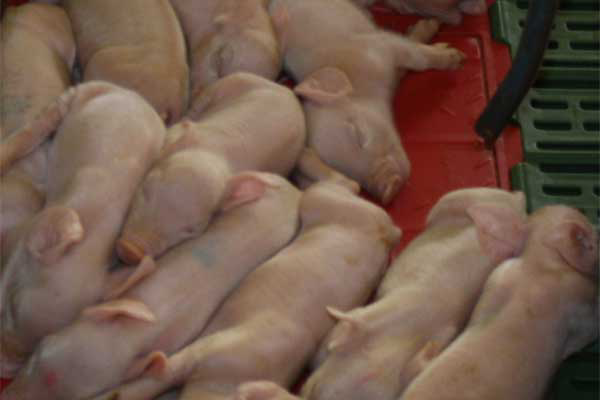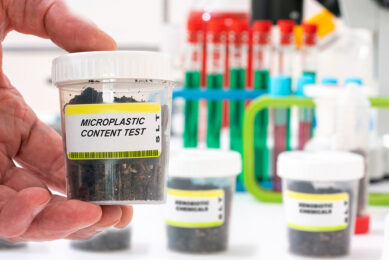Study: Piglet uniformity and mortality in large litters

Researchers at Wageningen University analysed effects of parity and pre-mating diet composition on piglets.
Organically kept sows (n=137 sow cycles) were fed a control diet during lactation and weaning-to-insemination interval (CON), or an insulin-stimulating diet (sucrose plus lactose, both 150g/d) during only the weaning-to-insemination interval (WII) or during the last two weeks of a 41±4 days lactation and the weaning-to-insemination interval (LAC+WII).
Piglets (live born and stillborn) were weighed individually within 24 hours after birth. Cross-fostering was allowed within treatments within the first 3 days after birth. Litter size was higher for parities 3 and 4 sows compared with older sows, whereas parity 2 sows had an intermediate litter size (the number of total born piglets was 17.0, 18.8 and 16.3 for sows of parities 2, 3 + 4 and ≥5, respectively; P<0.01).
Mean birth weight (1.26±0.02kg) was not influenced by parity, but birth weight CV and percentage of piglets <800g increased with increasing parity class, after corrections for number of total born piglets (for parities 2, 3+4 and ≥5, respectively, CV of birth weights were 21.3, 23.2 and 24.8%, P=0.05; and % piglets <800g were 6.2, 8.7 and 13.6%, P=0.02).
Pre-weaning piglet mortality also increased with parity class (20.9, 24.2, and 33.3% for parities 2, 3+4 and ≥5, respectively; P=0.01). Litter characteristics at birth and pre-weaning piglet mortality were not affected by the insulin-stimulating diets before mating. Piglet mortality from day 0 to 3 was strongly related with the number of total born piglets (β=1.47%/piglet; P<0.001), mean birth weight of the piglets (β=−30.99%/kg; P<0.001), CV of birth weights (β=1.08%/%; P<0.001) and % piglets <800g (β=0.58%/%; P<0.01).
It is concluded that piglet birth weight and birth weight uniformity affect pre-weaning piglet mortality in organic sows with large litters. Piglet uniformity and piglet mortality were also affected by parity, but not by pre-mating insulin-stimulating diets.











